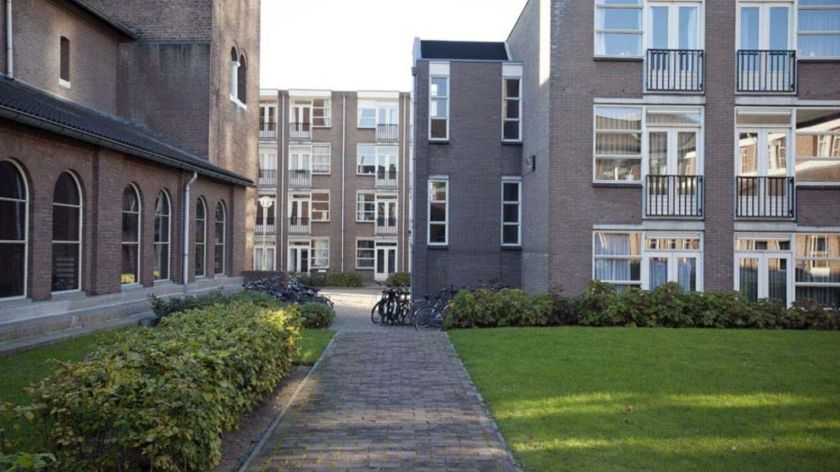Nijmegen rental agencies busier than ever
-
 SSH&-complex Doddendaal. Foto: SSH&
SSH&-complex Doddendaal. Foto: SSH&
Despite the coronavirus pandemic, there is still a shortage of rooms in Nijmegen. Nijmegen housing agencies say that additional rooms are necessary. ‘The current policy is enormously frustrating.’
It is a recurring phenomenon: there are not enough rooms available for all the students in need of them. Anyone who hoped that the coronavirus pandemic would change this — for example due to many international and first-year students staying at home — will be sorely disappointed.
‘There is a huge demand. We are busier than ever’, says Kelly Hendriks of KBS Vastgoedbeheer. She says that the shortage is leading to desperation among students. ‘Every day we have students, who have been looking for a room for months, on the phone crying.’
No Gap Year
Wibeco, another large private rental agency, has also been seeing record levels of demand. ‘We have never had so many registrations’, says Director Claes de Witt. According to De Witt the cause is simple: many more young people are starting their studies than usual. ‘People are not taking a gap year or travelling this year, instead preferring to begin university.’
‘Every day we are receiving calls from crying students’
Due to a change in the allocation system, the SSH&, Nijmegen’s largest student housing association, cannot tell if more people want to stay in rooms compared to last year. However, the association has been able to rent out more residences than ever because 330 fewer international students registered with them this year. These homes will now be allocated via the normal lottery system. ‘We are filling up these rooms easily’, says Director Kees Stunnenberg.
Heated Discussions
According to projections from the municipality of Nijmegen, 2,000 rooms will have to be added by 2030, but that’s even more difficult than it sounds. Since 2018, the municipality of Nijmegen has implemented a strict policy against converting houses into student rooms. This comes after fierce criticism from residents of the neighbourhoods near the city centre, such as Bottendaal and Altrade. They feared that their neighbourhood would become unpleasant to live in if the proportion of students continued to grow.
However, rental agencies believe that converting to student rooms is necessary to accommodate the increasing number of students. ‘Of course, the quality of life must be protected, but for people looking for a room the current policy is extremely frustrating’, according to Hendriks of KBS Vastgoedbeheer. ‘The municipality wants to attract more and more students to Nijmegen, but at the same time it is making its room rental policy stricter. That is contradictory.’



